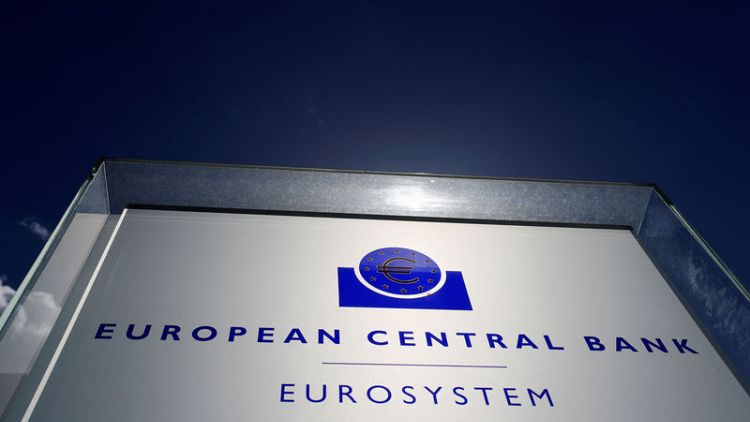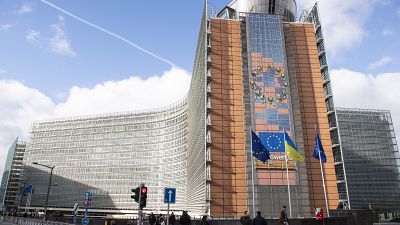By Hari Kishan and Rahul Karunakar
BENGALURU (Reuters) - The European Central Bank will finish its stimulus programme by the end of 2018, according to a Reuters poll of economists, despite nearly half of those surveyed saying it was not in control of inflation.
So far the ECB has spent over 2.5 trillion euros (£2.19 trillion) buying bonds to try and push inflation up to its target of just under 2 percent but that level has yet to be reached. Euro zone inflation has fallen to 1.2 percent from 1.3 percent at the start of the year.
The latest Reuters poll of over 80 economists, taken May 16-23, showed inflation is not expected to reach the ECB's target until at least 2021. Nor is growth, currently in retreat, forecast to re-accelerate significantly either.
About 45 percent of 37 economists who answered an extra question said the ECB was not actually in control of euro zone inflation and while the other respondents said it was, their actual forecasts did not reflect the same confidence.
"Although we do expect inflation to rise toward the aim, one can hardly conclude that the ECB is in control of inflation based on the development over the past few years," said Rasmus Gudum-Sessingo, senior economist at Handelsbanken.
Two ECB policymakers said on Wednesday that the central bank can still end its bond buying programme later this year, even as data cast doubt on the health of the economy.
After a mini-boom last year where it outpaced its peers into the turn of the year, euro zone growth has slowed recently. The euro <EUR=> has fallen more than 4 percent against the dollar since the start of last month.
Economists, like the ECB, have chosen to remain optimistic, despite forward-looking indicators in the purchasing managers' indexes suggesting no rebound. Nearly 70 percent of over 40 economists said the recent economic slowdown was just a pause.
But median forecasts for growth in the latest poll do not match that view, and instead line up with the remaining respondents who argue the euro zone economy is undergoing a fundamental shift down to a lower trend rate of growth.
The Reuters poll puts growth at an average 0.4-0.6 percent each quarter through to the end of next year, similar to polls since January. While a decent rate by historical standards, that would still mean some of the recent momentum has been lost.
Among common contributors with the previous Reuters poll, over a third have downgraded their 2018 growth outlook.
The range of forecasts - which were taken before May flash euro zone PMIs showed growth slowed much more sharply than expected - also suggests a loss of momentum next year. The most optimistic calls were slightly pared back from April.
"It has been repeated ad nauseam that first-quarter growth in the euro zone has been slowed by temporary factors... but until now we've hardly seen an uptick in the sentiment indicators in the second quarter, suggesting that there is not much of an acceleration to be expected," noted Peter Vanden Houte, chief euro zone economist at ING.
"One senses that the growth momentum is more likely to slow rather than accelerate again. Contemplating the euro zone's growth perspectives we, unfortunately, might have to refer to the famous Looney Tunes catchphrase - 'That's all folks!'"
The inflation outlook, too, has barely changed from previous polls. The consensus was for inflation to average 1.5 percent this year, 1.6 percent next and 1.7 percent in 2020.
Still, the ECB is expected to end its quantitative easing programme by end-year, according all but two of 55 economists who answered the question, including eight respondents expecting it to stop when the current plan expires in September.
"Assuming that the economic data doesn't deteriorate much further in the coming months, we would expect the net asset purchases to be extended until December at a pace of 10 billion euros per month, after which the programme will be terminated," noted Elwin de Groot, head of macro strategy at Rabobank.
"We maintain our view that ending the purchase programme is mostly driven by supply constraints in the bond market, rather than the ECB declaring victory over inflation."
No major announcement is expected when ECB policymakers meet in June. The consensus is for the central bank to take the deposit rate higher by 15 basis points to -0.25 percent in the second quarter of next year and hike refinancing rate by 10 basis points the following quarter.
(Reporting by Hari Kishan; Polling by Indradip Ghosh and Mumal Rathore; Editing by Toby Chopra)



